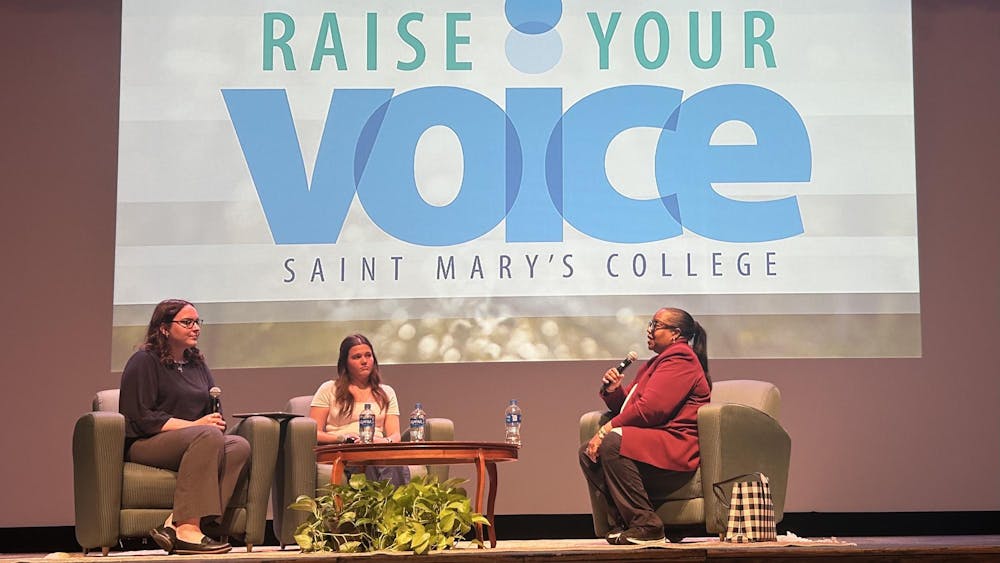Salma Ishak, one of Saint Mary's two 2012-13 Fulbright teaching assistants, introduced faculty members and students to her home country of Yemen in Cushwa-Leighton Library on April 8.

Ishak's presentation was sponsored by the Saint Mary's Center for Women's Intercultural Leadership (CWIL).
The center's director, Elaine Meyer-Lee, said becoming a Fulbright scholar is a "highly competitive process and these scholars do it all. They teach in our classrooms with our faculty and take classes with our students."
Ishak began her presentation by pointing to Yemen on a map.
"People constantly ask me, 'Is [Yemen] in Europe? Is it in Africa? Is it in Germany?'", Ishaksaid.Ishak said Yemen is a country located in Western Asia, at the southern end of the Arabian Peninsula. Yemen's geographical position, with more than 2,000 kilometers of coastline extending from the Red Sea in the West to the Arabian Sea in the East, is a gift, Ishak said.
"Its geographical location has placed it at the heart of trade and cultural exchange between [the] East and West," Ishak said. "It is known for its coffee exports, as well as its spices. ...
I am very accustomed to rich foods. When I eat American food, I always ask where I can find the spices."

Ishak's home city is Sana'a, Yemen's capital. Ishak said its altitude of 7,500 ft. makes it one of the world's highest capital cities.
"[Sana'a is ] one of the very oldest inhabited cities in the [Arab] world, and it still has the original architecture," she said. Ishak said a typical day in her home city is interwoven with Islam, the main religion of the country. She said there is also a small representation of Jewish populations.
"We wake up at five a.m. to pray, one hour before sunrise."Ishak said.
Families in Yemen are often very large, Ishak said.
"It is weird in Yemen to have only one or two children, usually there are between four and seven in each family," she said.
Ishak said women in Yemen are expected to remain home and raise their children. Less than 47 percent of women in Yemen are literate, she said, and the Yemen education system is very underdeveloped.
Ishak said she is studying to obtain a degree in education in order to return home and contribute to the rejuvenation of the system.
Because she has been studying English for some time, Ishak said there was no language barrier when she arrived at Saint Mary's, but other cultural differences have taken some adjusting to.
"Last semester, I was almost the only one with a scarf, and that was very hard," Ishak said. "Everyone here is very kind, so it was not so bad, but I could tell that many students wanted to ask about it and did not."
Ishak said the dining hall experience has helped her meet friends on campus.
"In my culture, socializing at meals is very important."Ishak said. "Those who work away from home come back for lunch each day to eat with their families. It is a similar situation at Saint Mary's. If I did not have [the] dining hall, it would be very hard to make friends and socialize with people.












